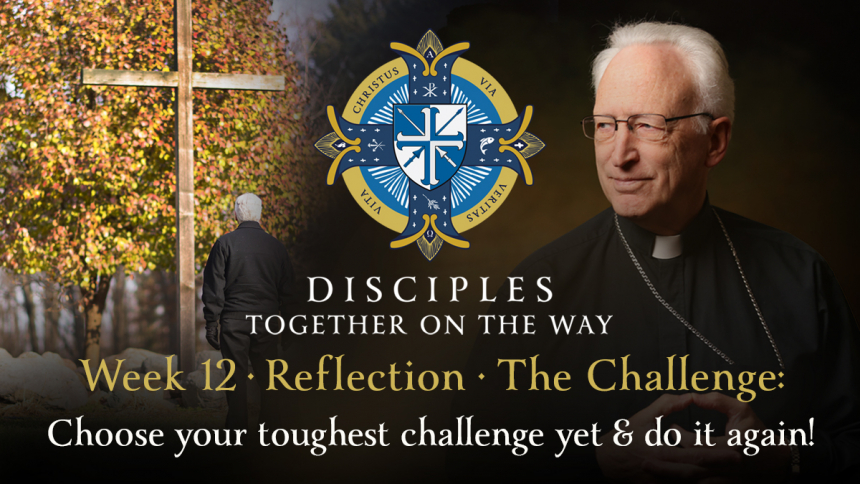
My sisters and brothers in the Lord,
September of last year marked the 700th anniversary of the death of the Italian writer, Dante Alighieri, author of one of the greatest works of medieval poetry, the Divine Comedy.
Dante’s poem is written in three parts. In the second part, he takes the reader on a journey to the realm of purgatory, a place of purification where we overcome vice, attain virtue, and grow in intimacy with God.
Dante depicts purgatory as an island-mountain consisting of seven levels, or terraces, of suffering and spiritual growth, associated with overcoming the seven deadly sins: Pride, Envy, Wrath, Sloth, Avarice, Gluttony, and Lust.
At the summit of Mount Purgatory is the Earthly Paradise or Garden of Eden. As a destination, it represents a recapturing of that state of perfect communion with God enjoyed by our earliest ancestors, Adam and Eve, before they committed the first sin.
My sisters and brothers, whether we’ve known it or not, over the past eleven weeks we too have been attempting to ascend the very same mountain described by Dante. Through praise, asceticism, and repentance we have taken our first steady steps upwards, towards an ever-deeper communion with God.
This journey has been made possible through the incarnation of Jesus Christ, our new Adam, and inspired and protected by his Blessed Mother, Mary, our new Eve. Thank you for joining me on the journey so far. I couldn’t have asked for better company.
This week, I would like us to pause, pray and reflect upon where we have been and where we are going as Disciples Together on the Way.
So far, we have attempted to live-out 11 different practices of a Christian disciple over the past 11 weeks. Of course, our aspiration in doing these practices over the course of seven days is that they become habitual. A virtue, after all, is but an acquired good habit.
As you’d expect, the social scientists who study these matters tell us different things about establishing a habit. Some say you need to repeat an action for 21 days for it to become a habit. Some say less. Some say more. Most say it depends on the good habit we are trying to acquire or the bad habit – or vice – we are trying to break. Regardless, all of them say that the more we do something, the more likely it is to become a habit.
Hence, this week, let us prayerfully look back on the previous 11 habits of a Christian disciple which we’ve attempted to live-out. They are listed here. Then, let us choose the challenge from a previous week which we found to be the most difficult and let’s do it again! That’s our challenge for this week. It’s a repeat!
Remember, God’s love for us does not depend upon our doing difficult things. He has loved us for all eternity. At the same time, however, it is also true that the more demanding a thing is, the more value it tends to have for us and thus the more it changes us. Nothing worthwhile in this life is ever easy to achieve. As Saint Rose of Lima said over 400 years ago: “Without the burden of afflictions it is impossible to reach the height of grace. The gift of grace increases as the struggle increases.” Like all the great saints, she also knew that God treasures the sacrifices that we make for him. Why? Because any sacrifice we make is a by-word for our love for God.
So, to re-cap. Our challenge this week: Let us choose the challenge from a previous week that we found most difficult and do it again. Next week we’ll set off again, up the mountain. Until then, though, may God bless you throughout this coming week, in the name of the Father and the Son and the Holy Spirit. Amen.
Yours in Christ,
+ Earl Boyea
Bishop of Lansing
